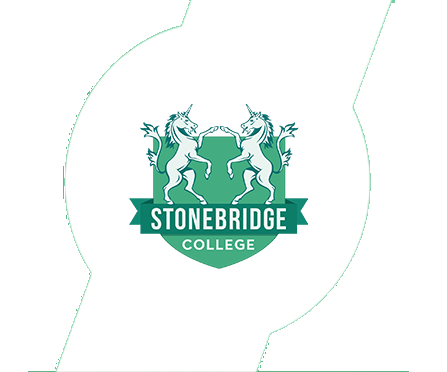Access to Higher Education Diploma (Health and Social Care).

Access to Higher Education Diploma (Health and Social Care)
Your Course at a Glance
- Get prepared for degree-level study
- Gain essential skills to help at-risk individuals
- Achieve a nationally recognised qualification
- Pursue careers in health and social care
- Go to university without A Levels
- Complete your course in less than a year
About Your Diploma
Health and social care are fundamental to the well-being of our society, providing essential support to those who need it most. If you aspire to make a meaningful impact in this field, starting with the right qualifications is crucial.
Professionals in health and social care offer vital assistance to vulnerable individuals, including the sick, elderly, and those with specific medical needs. They work to promote physical and mental health, as well as support independent living for people of all ages, from young children to the elderly.
Our Access to Higher Education Diploma (Health and Social Care) is designed to prepare you for a related degree at university. Equivalent to three A-Levels, this Level 3 diploma is widely accepted by universities for entry into health and social care degrees. However, it's always best to confirm with your chosen university before applying.
This course opens the door to numerous career paths within the health and social care sector, such as support work, community development, and nursing. You'll gain a comprehensive understanding of key topics including developmental psychology, healthcare communication, and the principles of equality, diversity, and inclusion in healthcare settings.
Additionally, you will explore the impact of various factors on human health, such as poverty, substance abuse, and mental health disorders. This knowledge will equip you to address and manage these challenges effectively in your professional role.
Getting Started
On successful completion of the Access to Higher Education Diploma (Health and Social Care), (QAA aim code: 4001468X), you will receive a Skills & Education Group Access, QAA recognised, Access to Higher Education Diploma at Level 3. As part of your programme, you will also receive help as well as guidance on your university application and the research you need to do to get the most out of your diploma.
An access validating agency with a strong social purpose to recognise achievement, particularly for those who have benefited least from their previous educational experiences, Skills and Education Group Access supports the needs of learners, providers, businesses and communities.
As part of the Awarding Organisation requirements, to receive certification for this training course you must be subscribed for a minimum period of 9 months. The minimum subscription period is measured in total months subscribed, which do not have to be consecutive.
This means that if your personal circumstances change (time available to study, financial pressures etc.), you can cancel/pause your study and payments at any time. If you decide to return to your studies at a later date, you can simply reactivate your subscription and continue from where you left off (we will save all your course progress). Using our subscription service you are not tied into a credit agreement.
To study an Access to HE Diploma you must be resident in the UK and have a UK postcode.
You must hold Level 2 qualifications in both English and Maths, or be working towards them alongside studying your Access to Higher Education Diploma.
University Entry Criteria
It must be reiterated that each university will set its own admission criteria. So, you must check with your desired institution if your Access to HE Diploma and other qualifications will be accepted.
In many cases, to get started on healthcare courses at university, you will need:
- A certain number of credits passed with a merit or a distinction grade
- A face-to-face interview at the university
- Literacy and numeracy assessments provided by the university
- Course-related work placements or work experience
- GCSE Grade C/4 or above in Maths and English (or equivalent Level 2 such as Functional Skills/Key Skills, etc.)
It is your responsibility to check that your Access to HE Diploma will be accepted as part of these entry requirements for your chosen degree. Stonebridge will not be held accountable if completing this Access to Higher Education Diploma doesn’t secure you a position with a higher education institution.
Minimum Age Restriction
This course is ideally suited to those who have completed full-time education but have not achieved the grades required to get into university.
Average Completion Timeframe
The average time it takes our learners to complete the course is 9-12 months.
Assessment Requirements
A range of assessment methodologies are used, including: academic report, essay, case study analysis, illustrated report, journal article, portfolio, academic poster, presentation (video and audio recording), developing promotional activity, series of questions, academic writing skills tasks.
In addition to the qualification units, you will also be required to complete short introductory tasks at the start of your course to support the development of your academic study skills.
Exams Required
There are no exams included in the assessment of the course.
Additional Requirements
Learners must be actively studying for a minimum of six months before results can be ratified and certificates ordered. The six month period does not start until you have completed and passed the course induction and you must be submitting assignments regularly (in line with the deadlines in your Individual Learning Plan) to meet this six month requirement. Certificates can only be issued once your course is paid for in full.
Certification Timeframe
You can expect to receive your certificate 12-16 weeks from your final assignment being marked and graded, depending on the time of year. You will be provided with regular updates throughout the certification process so that you are fully informed of your individual timeframes.
Module 1: Academic Writing Skills
Upon successful completion of this module, you will:
- Be able to structure a written response
- Be able to develop a structured response to a plan
- Be able to present the response appropriately for audience and purpose
- Understand how to apply academic writing principles to own work
Module 2: Reading and Note Making
Upon successful completion of this module, you will:
-
Understand a range of reading strategies
-
Understand the use of language in terms of the purpose and context of a range of texts
-
Be able to use methods for developing notes from a range of sources
Module 3: Healthcare Communication
Upon successful completion of this module, you will:
-
Understand the methods and barriers of communication in healthcare
-
Be able to analyse the importance of good communication skills in healthcare
-
Understand the importance of confidentiality and record keeping
Module 4: Perspectives in Psychology
Upon successful completion of this module, you will:
-
Understand different psychological perspectives
-
Understand the differences between alternative psychological perspectives
-
Be able to apply psychological perspectives to contemporary issues in psychology
Module 5: Family
Upon successful completion of this module, you will:
-
Understand the relationship between the family and the wider society
-
Understand role relationships within the family
-
Be able to evaluate the influence of feminism on the study of the family
Module 6: Equality, Diversity and Inclusion in Healthcare Settings
Upon successful completion of this module, you will:
-
Know the key concepts related to Equality, Diversity and Inclusion (EDI)
-
Understand key legislation and regulations related to EDI in healthcare
-
Be able to evaluate the effectiveness of NHS policies and/or initiatives in promoting EDI
Module 7: Developmental Psychology
Upon successful completion of this module, you will:
-
Be able to evaluate the nature/ nurture debate in developmental psychology
-
Understand early socialisation and the formation of attachment
-
Understand cognitive development and the ways in which children process and use information
-
Know the application of developmental psychology theories in the real world
-
Understand psychological changes that accompany ageing
Module 8: Professionalism and Multidisciplinary Teams
Upon successful completion of this module, you will:
-
Understand the impact of changes to the roles and responsibilities of a chosen health care professional
-
Understand regulation as a chosen health care professional
-
Be able to evaluate the effectiveness of the multidisciplinary team approach to working in a chosen health care setting
Module 9: Understanding the Welfare State
Upon successful completion of this module, you will:
-
Understand the historical development of the British Welfare State
-
Understand the main welfare services available in contemporary British society
-
Be able to evaluate the differing ideologies of welfare and their implications for service provision
-
Understand a current contemporary issue in welfare provision
Module 10: Cognitive Psychology
Upon successful completion of this module, you will:
-
Understand theories relating to cognitive psychology
-
Be able to analyse the contribution of cognitive psychology research to our understanding of cognitive processes
-
Be able to evaluate the effectiveness cognitive psychology theories to real-world situations
Module 11: Social Inequality
Upon successful completion of this module, you will:
-
Understand the relationship between social differentiation and social inequality
-
Understand the main theoretical perspectives on social inequality
-
Be able to analyse and evaluate how class, gender and ethnicity influence opportunities available to people
Module 12: Biopsychology: Behaviour and the Brain
Upon successful completion of this module, you will:
-
Understand the concept of localisation of function
-
Be able to evaluate methods of investigating the relationship between the brain and behaviour
-
Understand the interaction between the brain and behaviour
Module 13: Social Care Provisions
Upon successful completion of this module, you will:
-
Understand the adult and child social work provisions in the UK
-
Be able to analyse the contributions of the voluntary and private sector in the provision of care
-
Understand the differing welfare needs of groups of people
Module 14: Poverty in Contemporary Britain
Upon successful completion of this module, you will:
-
Be able to evaluate definitions and theoretical explanations of poverty
-
Understand the historical context and changes in poverty in Britain
-
Understand the different methods used to measure poverty
-
Be able to evaluate recent policies for tackling poverty in Britain
Module 15: Biopsychology: Behaviour and Drugs
Upon successful completion of this module, you will:
-
Know how neurotransmitters in the brain control behaviour
-
Understand the effects of psychoactive drugs on behaviour
-
Be able to evaluate the role of drugs in the treatment of psychological disorders
Module 16: Dementia
Upon successful completion of this module, you will:
- Understand the causes and prevalence of dementia
- Understand the diagnosis of dementia
- Understand treatment and care of dementia patients
Module 17: Responding to Prejudice and Discrimination
Upon successful completion of this module, you will:
-
Understand theories for prejudice and discrimination
-
Be able to evaluate legal responses to discrimination and prejudice
-
Understand community initiatives in overcoming discrimination and prejudice
In addition to the qualification units, you will also be required to complete a course induction which comprises of three short introductory tasks to support the development of your academic study skills.

A range of units make up this qualification, with an assignment at the end of each. You will submit your work to your tutor for marking and tailored feedback. You must acquire 60 credits in total in order to achieve the Access to HE Diploma (Health and Social Care). Of these credits, 45 will be taken from graded units which focus on the academic subject areas included in the course. The remaining 15 come from ungraded units included to help you to improve your academic writing and study skills.
In addition to the qualification units, you will also be required to complete short introductory tasks at the start of your course to support the development of your academic study skills.
As part of your course, you will also receive help as well as guidance on your university application and the research you need to do to get the most out of your diploma.
VALUE
Annual
- 100% Online
- Full Tutor Support
- No Credit Checks or Credit Agreement
Monthly
- 100% Online
- Full Tutor Support
- No Credit Checks or Credit Agreement
Free 7-Day Trial
Register for a 7-day FREE trial (your payment details will be taken at checkout but not charged). Once the trial period ends you will be charged the monthly fee unless you cancel. Cancel Anytime. No Commitment.- 100% Online
- Full Tutor Support
- No Credit Checks or Credit Agreement
Your Course at a Glance
- Get prepared for degree-level study
- Gain essential skills to help at-risk individuals
- Achieve a nationally recognised qualification
- Pursue careers in health and social care
- Go to university without A Levels
- Complete your course in less than a year
About Your Diploma
Health and social care are fundamental to the well-being of our society, providing essential support to those who need it most. If you aspire to make a meaningful impact in this field, starting with the right qualifications is crucial.
Professionals in health and social care offer vital assistance to vulnerable individuals, including the sick, elderly, and those with specific medical needs. They work to promote physical and mental health, as well as support independent living for people of all ages, from young children to the elderly.
Our Access to Higher Education Diploma (Health and Social Care) is designed to prepare you for a related degree at university. Equivalent to three A-Levels, this Level 3 diploma is widely accepted by universities for entry into health and social care degrees. However, it's always best to confirm with your chosen university before applying.
This course opens the door to numerous career paths within the health and social care sector, such as support work, community development, and nursing. You'll gain a comprehensive understanding of key topics including developmental psychology, healthcare communication, and the principles of equality, diversity, and inclusion in healthcare settings.
Additionally, you will explore the impact of various factors on human health, such as poverty, substance abuse, and mental health disorders. This knowledge will equip you to address and manage these challenges effectively in your professional role.
Getting Started
On successful completion of the Access to Higher Education Diploma (Health and Social Care), (QAA aim code: 4001468X), you will receive a Skills & Education Group Access, QAA recognised, Access to Higher Education Diploma at Level 3. As part of your programme, you will also receive help as well as guidance on your university application and the research you need to do to get the most out of your diploma.
An access validating agency with a strong social purpose to recognise achievement, particularly for those who have benefited least from their previous educational experiences, Skills and Education Group Access supports the needs of learners, providers, businesses and communities.
Module 1: Academic Writing Skills
Upon successful completion of this module, you will:
- Be able to structure a written response
- Be able to develop a structured response to a plan
- Be able to present the response appropriately for audience and purpose
- Understand how to apply academic writing principles to own work
Module 2: Reading and Note Making
Upon successful completion of this module, you will:
-
Understand a range of reading strategies
-
Understand the use of language in terms of the purpose and context of a range of texts
-
Be able to use methods for developing notes from a range of sources
Module 3: Healthcare Communication
Upon successful completion of this module, you will:
-
Understand the methods and barriers of communication in healthcare
-
Be able to analyse the importance of good communication skills in healthcare
-
Understand the importance of confidentiality and record keeping
Module 4: Perspectives in Psychology
Upon successful completion of this module, you will:
-
Understand different psychological perspectives
-
Understand the differences between alternative psychological perspectives
-
Be able to apply psychological perspectives to contemporary issues in psychology
Module 5: Family
Upon successful completion of this module, you will:
-
Understand the relationship between the family and the wider society
-
Understand role relationships within the family
-
Be able to evaluate the influence of feminism on the study of the family
Module 6: Equality, Diversity and Inclusion in Healthcare Settings
Upon successful completion of this module, you will:
-
Know the key concepts related to Equality, Diversity and Inclusion (EDI)
-
Understand key legislation and regulations related to EDI in healthcare
-
Be able to evaluate the effectiveness of NHS policies and/or initiatives in promoting EDI
Module 7: Developmental Psychology
Upon successful completion of this module, you will:
-
Be able to evaluate the nature/ nurture debate in developmental psychology
-
Understand early socialisation and the formation of attachment
-
Understand cognitive development and the ways in which children process and use information
-
Know the application of developmental psychology theories in the real world
-
Understand psychological changes that accompany ageing
Module 8: Professionalism and Multidisciplinary Teams
Upon successful completion of this module, you will:
-
Understand the impact of changes to the roles and responsibilities of a chosen health care professional
-
Understand regulation as a chosen health care professional
-
Be able to evaluate the effectiveness of the multidisciplinary team approach to working in a chosen health care setting
Module 9: Understanding the Welfare State
Upon successful completion of this module, you will:
-
Understand the historical development of the British Welfare State
-
Understand the main welfare services available in contemporary British society
-
Be able to evaluate the differing ideologies of welfare and their implications for service provision
-
Understand a current contemporary issue in welfare provision
Module 10: Cognitive Psychology
Upon successful completion of this module, you will:
-
Understand theories relating to cognitive psychology
-
Be able to analyse the contribution of cognitive psychology research to our understanding of cognitive processes
-
Be able to evaluate the effectiveness cognitive psychology theories to real-world situations
Module 11: Social Inequality
Upon successful completion of this module, you will:
-
Understand the relationship between social differentiation and social inequality
-
Understand the main theoretical perspectives on social inequality
-
Be able to analyse and evaluate how class, gender and ethnicity influence opportunities available to people
Module 12: Biopsychology: Behaviour and the Brain
Upon successful completion of this module, you will:
-
Understand the concept of localisation of function
-
Be able to evaluate methods of investigating the relationship between the brain and behaviour
-
Understand the interaction between the brain and behaviour
Module 13: Social Care Provisions
Upon successful completion of this module, you will:
-
Understand the adult and child social work provisions in the UK
-
Be able to analyse the contributions of the voluntary and private sector in the provision of care
-
Understand the differing welfare needs of groups of people
Module 14: Poverty in Contemporary Britain
Upon successful completion of this module, you will:
-
Be able to evaluate definitions and theoretical explanations of poverty
-
Understand the historical context and changes in poverty in Britain
-
Understand the different methods used to measure poverty
-
Be able to evaluate recent policies for tackling poverty in Britain
Module 15: Biopsychology: Behaviour and Drugs
Upon successful completion of this module, you will:
-
Know how neurotransmitters in the brain control behaviour
-
Understand the effects of psychoactive drugs on behaviour
-
Be able to evaluate the role of drugs in the treatment of psychological disorders
Module 16: Dementia
Upon successful completion of this module, you will:
- Understand the causes and prevalence of dementia
- Understand the diagnosis of dementia
- Understand treatment and care of dementia patients
Module 17: Responding to Prejudice and Discrimination
Upon successful completion of this module, you will:
-
Understand theories for prejudice and discrimination
-
Be able to evaluate legal responses to discrimination and prejudice
-
Understand community initiatives in overcoming discrimination and prejudice
In addition to the qualification units, you will also be required to complete a course induction which comprises of three short introductory tasks to support the development of your academic study skills.

A range of units make up this qualification, with an assignment at the end of each. You will submit your work to your tutor for marking and tailored feedback. You must acquire 60 credits in total in order to achieve the Access to HE Diploma (Health and Social Care). Of these credits, 45 will be taken from graded units which focus on the academic subject areas included in the course. The remaining 15 come from ungraded units included to help you to improve your academic writing and study skills.
In addition to the qualification units, you will also be required to complete short introductory tasks at the start of your course to support the development of your academic study skills.
As part of your course, you will also receive help as well as guidance on your university application and the research you need to do to get the most out of your diploma.
Our Advisors.
Our team of course advisors are keen to help.
Call us now on 0121 392 8288
Alternatively, please complete the form below and we’ll get back to you as soon as possible.
Our student support team is here for you.











